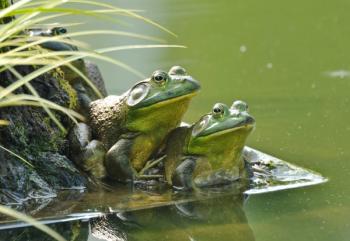
We Cannot Abandon Youth to Climate Anxiety
Children have real worries driven by real threats when it comes to climate change.
FROM OUR READERS
This article is a response to the article “
David T. Springer, MD, has brought up several concerns and differences with my article and Elizabeth Haase, MD’s regarding the youth lawsuit against the State of Montana for impacts on climate change on the youth plaintiffs, Held v Montana. I welcome this forum as a place for civil discussion of our differing points of view—something so needed and rare in our very divided and often angry, volatile public discourse these days.
Dr Springer is correct that neither of the articles mentioned address all the many very complex issues associated with climate change including wildlife loss, endangered species, and the complexity of the transition to clean energy; that is beyond the scope of our attention in these articles.
Yet, I respectfully disagree with identifying climate change and the impacts on health and mental health as a “belief.” During the plaintiff’s case in this lawsuit, the expert witnesses—who are renowned researchers, academics, and clinicians—presented the science supporting their opinions. Furthermore, there is now vast scientific consensus substantiating anthropomorphic contributions to our changing climate and the profound health and mental health impacts. The notion that climate change is not occurring, but only a reflection of cyclical weather phenomena is not supported by any reputable science. Climate change is a well-established scientific fact.
I have a different perspective on the implication that those of us addressing climate distress are contributing to children’s anxiety. The children/youth plaintiffs in this case (and many other youth) spoke to what they are seeing in their own experiences and their communities and the associated ways this impacts their lives every day.
I do agree with Dr Springer’s comment, “Childhood is a time for children to grow and mature” or, maybe, more accurately for me, a wish that childhood should be a carefree time. I nostalgically look back on simpler times when troubles of the world did not intrude on children’s innocence. I wish it were this way. But this is not the reality of the troubled world we and children now live in. To leave children/youth alone with their real worries driven by real threats is tantamount to a kind of psychological abandonment.
We adults and psychiatrists should not do that.
Dr Cooper is clinical associate professor in the Department of Psychiatry at the University of California, San Francisco.
Newsletter
Receive trusted psychiatric news, expert analysis, and clinical insights — subscribe today to support your practice and your patients.







